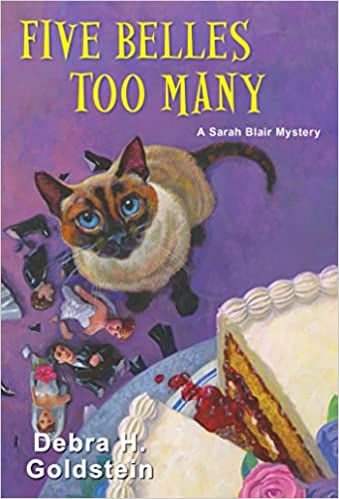Askers and Guessers/Requesters and Diviners which are you? from Isabel Swift
March 24, 2011 by Isabel Swift in category From Isabel Swift tagged as Personality typesI have always enjoyed reading advice columnists, a pleasure which has increased with the advent of the net and the ability of others to post comments on both their opinion of the advice as well as responses to the LW (letter writer in advice column parlance!).
My brilliant friend and sf writer, Ellen Kushner, shared this link, which links to this link, which offers the following paradigm that presents and explains the two different, and occasionally contentious cultures of the Asker (Requester) Vs the Guesser (Diviner). It’s a facinating–and I found very helpful–insight into how differently people react to the same stimulus. Here’s an exerpt from one of the links that lays out the paradigm in a response to a query:
“This is a classic case of Ask Culture meets Guess Culture.
“In some families, you grow up with the expectation that it’s OK to ask for anything at all, but you gotta realize you might get no for an answer. This is Ask Culture.
In Guess Culture, you avoid putting a request into words unless you’re pretty sure the answer will be yes. Guess Culture depends on a tight net of shared expectations. A key skill is putting out delicate feelers. If you do this with enough subtlety, you won’t even have to make the request directly; you’ll get an offer. Even then, the offer may be genuine or pro forma; it takes yet more skill and delicacy to discern whether you should accept.
“All kinds of problems spring up around the edges. If you’re a Guess Culture person — and you obviously are — then unwelcome requests from Ask Culture people seem presumptuous and out of line, and you’re likely to feel angry, uncomfortable, and manipulated.
“If you’re an Ask Culture person, Guess Culture behavior can seem incomprehensible, inconsistent, and rife with passive aggression.
“Obviously she’s an Ask and you’re a Guess. (I’m a Guess too. Let me tell you, it’s great for, say, reading nuanced and subtle novels; not so great for, say, dating and getting raises.)
“Thing is, Guess behaviors only work among a subset of other Guess people — ones who share a fairly specific set of expectations and signalling techniques. The farther you get from your own family and friends and subculture, the more you’ll have to embrace Ask behavior. Otherwise you’ll spend your life in a cloud of mild outrage at the Cluelessness of Everyone.
“As you read through the responses to this question, you can easily see who the Guess and the Ask commenters are. It’s an interesting exercise.”
posted by tangerine at 11:38 PM on January 16, 2007 [859 favorites]
You will indeed be able to determine which are Ask and which Guess as you read the comments. Though I hate to call them “guessers” as this type works hard to read the signals so they aren’t guessing. What seems particularly poignant is that even after the two positions are explained, some of the responders are still on their moral high horse of outrage, excoriating the hapless requester as being poorly brought up and horrifyingly rude.
This is what diversity training is all about! We tend to work from our own experience and make assumptions about behavior based, naturally, on ourselves. And I must say it makes me nervous when people are vilified for behaving differently. For, as Hamlet notes to his friend, “There are more things in heaven and earth, Horatio, than are dreamt of in your philosophy.” (Hamlet, Act 1, Scene 5)
So if you are a Diviner/Guesser, try to avoid feeling pressured by a request. Channel your inner Asker and realize you can Just Say No. Really. They will likely not hate you forever. They were just asking! And by the same token as a Diviner, work on asking more, hating people forever less, and finding a reasonable common ground.
If you’re an Asker/Requester, try to avoid putting pressure on with a request if you don’t know the person well–or even if you do. Try to offer a face-saving out or reassurances. There are mine fields, and whether you choose to be aware of them or not, you may lose limbs and/or friendships!
I hope you found this as insightful as I did. I confess to being a diviner, but have close family members who are askers. I work on responding in kind and trying to channel their straightforwardness when I need it!
So…are you a requester or diviner?
Travel Tip from Isabel Swift
February 24, 2011 by Isabel Swift in category From Isabel Swift tagged as airports, travel tipsFrequent air travelers may already have figured this one out, but this has proved helpful to me. I hope it will be helpful to you.
Advice on what to do when you are at the airport and discover your flight has been delayed:
It has been my experience that airlines representatives will avoid direct lying, but may not always tell the truth (exactly) and often not the whole truth (especially not in announcements). So the challenge is to figure out what are the right questions to ask. Questions that will compel them to deliver real information (Vs whatever they need to do to keep everyone calm).
So if there’s a delay, start with the question:
– Is the equipment in? (that is, is the plane assigned to fly you out actually here). This is especially important when there are weather issues.
If it is not, where is it coming from? Has it taken off? If not, why not, are planes taking off from that airport? How long does it take to get here from there? Have there been delays landing at your airport.
If it is in, why is there a delay?
– Is it mechanical (what is wrong, what is happening, any time estimate? is there an alternative plane available if it doesn’t get fixed? Is there an alternative flight available if it doesn’t get fixed?)
If it is not mechanical, what is it? Are all the crew here? If not, where are they coming from? When will they likely arrive? This usually doesn’t come into play unless a plan is delayed a long time & at a late hour, but crews can “expire” or time out. They are legally mandated not to work for more than a certain number of hours. Once thunderstorms kept all planes grounded for hours until quite late at night. Planes had to wait for a certain amount of time after any lightning event and there came a point that a couple of members of the crew would simply time out. There were no replacements available at that point, so the flight would be cancelled & we’d all have to go home & come back the next day. We squeaked in, but it’s worth asking about the crew if you’ve had a long delay & need to get a clearer picture of the variables to make plans.
My eye opening experience was once when I was flying out of Toronto, and the plane was delayed.
Airline: board indicates flight is 1/2 hour delayed. It’s winter and there is “weather.”
– Me to airline representative behind gate: why is it delayed? Is the equipment in?
– Airline: Equipment coming in was delayed, but is due in shortly & we’ll turn it around quickly.
– Me: Where is it coming from?
– Airline: (pause) I’ll have to check….. Chicago.
– Me: Thanks–but isn’t the weather coming from Chicago? Has it taken off yet?
– Airline: (pause) I’ll have to check….. No it is still on the runway.
– Me: Oh. Thanks. Are any flights taking off from Chicago right now?
– Airline: (pause) I’ll have to check….yes, they have just started flying out of Chicago.
– Me: Do you know where it is in line for take off?
– Airline: I don’t know, but it’s on the runway, not at the gate, so it’s in line (a bit long-suffering at this point).
– Me: Great! Once it takes off, how long a flight is it from Chicago?
– Airline: A little over an hour.
– Me: And then it’s about 1/2 hour to turn the plane around, right?
– Airline: Yes (a bit terse).
– Me: So with waiting for take off, travel time and turnaround time, it doesn’t look like the 1/2 hour late on the board is likely to happen, more like 2 hours if we’re lucky, right?
– Airline: (surly) Yes.
– Me: Thanks. Guess I’ll go get something to eat….
And remember, don’t kill the messenger. They are a key player in helping you, so alienating them by venting is not only not fair, it is not in your best interest.
So the moral of this story (and so many others) is:
What questions should you be asking?
0 0 Read moreA Twist of Lemon – Isabel Swift
January 24, 2011 by Isabel Swift in category From Isabel Swift tagged as Cocktails, writingHave you ever had a cocktail? I remember when I was younger being curious about the mystery of mixing drinks, and watching and learning from my father. Cocktails were these magic elixirs, complex, mysterious, alluring. Cooking held little interest for me, but making the right twist of lemon was an art I delighted in learning.
My father enjoyed a martini and took pleasure in the details. The right glass, the balance of tastes, the brand, crushing the ice in his hand with a spoon to get the right size slivers, the perfect chill, the right additions. Everything had impact. Everything mattered. And when I would taste the drink, I had to acknowledge that indeed, it did.
As I recall, we were a lemon twist family. I don’t think I learned of olives or onions until some much later date, though limes and even an occasional mint sprig would find its way into a seasonal libation.
But the lemon twist was what made the average drink exceptional.
It started with finding a firm, fresh lemon, with unblemished substantial skin. Not for us those thin-skinned lime-look-alikes. A small, sharp knife was needed and a lengthwise strip would be cut from stem to stern. A bit of white was acceptable, but you were looking to get a nice 1/4 inch (finger wide) ribbon of the yellow top coat, covered with tiny pores.
You’d take that ribbon and squeeze it over the surface of your completed cocktail, white inside toward you, the outer skin facing the drink like—my father would gleefully explain—you were squeezing blackheads. And oil did indeed emerge from the peel squeezing, creating a film of lemon essence, an oil slick on the surface of the drink.
You would then gently sweep the perimeter of the glass with the outside of the peel and drop it into the drink (twisting the peel would deliver similar oil-inducing pressure, but is less thorough, in my opinion). As my father noted, one didn’t really taste much after the first sip of a drink. The chill, the alcohol, would often take over, so the fact the oil essence didn’t last much beyond that initial sip didn’t matter. What mattered was that first sip was exquisite, sparkling, aromatic, heady.
However my experience with almost all ordered cocktails is dreadfully disappointing in this area. Most bartenders take the words “with a twist” at face value, and some variety of a curlicue of lemon appears, extracted by an assortment of designer bar implements and it sits decoratively on the edge of your drink. Useless as teats on a bull.
The whole point of a twist of lemon is to add a touch of fresh lemon oil to your drink, for reasons of taste. Not solely to stick a piece of lemon rind in your drink! But almost everyone misses the point. They make a living doing this, and they still don’t have their eye on the donut, the key deliverable, the “beef” and not the bun.
Missing—or just not understanding—the point is not a new issue. It can be a problem for aspiring writers too, who may dutifully following the letter Vs the spirit of instructions. Doing something without really understanding why it needs to be done, what value it offers, can lead you astray. It’s often why editorial instructions, tip sheets, etc. can sometimes be non-existent, minimalist or vague—because the requesters know that some information can mislead instead of inform.
In fact, information can distract you from focusing on the point. As an adviser, you really want the creator to understand that it’s all about achieving the goal: creating the feeling, having the impact, making the experience happen for the recipient. Not (necessarily) about taking each step correctly, following rules, or delivering on the surface requirements, but not the substance. Instructions or information can be helpful, but when it comes down to it, the question will always be: is it delicious? Do I want to keep drinking (or reading, or whatever).
So if you’re having trouble making your text behave, now at least now you’ll know what to add to that beverage you’re going to be fixing yourself!
Do it with a twist.
0 0 Read moreHow thankful are you? Thoughts on talking turkey from Isabel Swift
November 25, 2010 by Isabel Swift in category From Isabel Swift tagged as Thank you notes, ThanksgivingSuddenly, after complaining about others, she realized she’d been just as guilty. She wondered if the statute of limitations had expired, but in my opinion thanks have no expiration date. You can send a thank you years later, and it will still be fresh—and possibly even more appreciated. Go for it. And she did.
Learning from one of my favorite things–Isabel Swift
October 24, 2010 by Isabel Swift in category From Isabel Swift tagged as reading, teaA visit by an avid tea drinker gave me the excuse to expound on my fondness for my Alfi. In assessing my tea drinking habits, I realized there were many similarities with my romance reading habits! Like many romance readers (and tea drinkers), I have specific tastes, likes and dislikes. Some I can be quite intransigent about, others more open-minded.
As a romance reader, I connected, then expanded my reading in the genre in a similarly tentative manner–first Austen, then Regencies, then a fearful exploration into historicals and contemporaries when demand far exceeded supply.
Thinking about the visceral and physical aspects of tea helped me understand my (and perhaps other reader’s) reading process. Sometimes trying a new tea opens a whole new world–but if you’re conservative, it takes being forced to try something new in order to get you off the tried and true. For me with tea, it was being served a delicious new type at a restaurant. With reading, my reading world has been expanded by gift books, a friend’s vociferous recommendation, or a desperation buy when travelling….
A new format–tea bags, a thermal pot–opens up a new drinking experience and new opportunities. I think of audio books, eBooks, mobile and eReaders in that vein. And sometimes the issue is expectations: if I don’t think of this drink as tea, but open my mind and consider it just as a hot beverage–does it taste good? So for me, I’ve been able to explore Chai (a bit). And to connect the tea/reading experience, to enjoy urban fantasy and other relationship novels that include romance, but are not Romances.
What–and how–have your horizons been expanded?
0 0 Read moreAffiliate Links
A Slice of Orange is an affiliate with some of the booksellers listed on this website, including Barnes & Nobel, Books A Million, iBooks, Kobo, and Smashwords. This means A Slice of Orange may earn a small advertising fee from sales made through the links used on this website. There are reminders of these affiliate links on the pages for individual books.
Search A Slice of Orange
Find a Column
Archives
Featured Books
FIVE BELLES TOO MANY
When Sarah Blair’s mother participates in a reality show competition for brides in Wheaton, Alabama, things get a little too real as a murderer crashes the wedding party . . .
More info →BECKONED, PART 1: FROM LONDON WITH LOVE
The regret of missed opportunity...
More info →Newsletter
Contributing Authors
Search A Slice of Orange
Find a Column
Archives
Authors in the Bookstore
- A. E. Decker
- A. J. Scudiere
- A.J. Sidransky
- Abby Collette
- Alanna Lucus
- Albert Marrin
- Alice Duncan
- Alina K. Field
- Alison Green Myers
- Andi Lawrencovna
- Andrew C Raiford
- Angela Pryce
- Aviva Vaughn
- Barbara Ankrum
- Bethlehem Writers Group, LLC
- Carol L. Wright
- Celeste Barclay
- Christina Alexandra
- Christopher D. Ochs
- Claire Davon
- Claire Naden
- Courtnee Turner Hoyle
- Courtney Annicchiarico
- D. Lieber
- Daniel V. Meier Jr.
- Debra Dixon
- Debra H. Goldstein
- Debra Holland
- Dee Ann Palmer
- Denise M. Colby
- Diane Benefiel
- Diane Sismour
- Dianna Sinovic
- DT Krippene
- E.B. Dawson
- Emilie Dallaire
- Emily Brightwell
- Emily PW Murphy
- Fae Rowen
- Faith L. Justice
- Frances Amati
- Geralyn Corcillo
- Glynnis Campbell
- Greg Jolley
- H. O. Charles
- Jaclyn Roché
- Jacqueline Diamond
- Janet Lynn and Will Zeilinger
- Jaya Mehta
- Jeannine Atkins
- Jeff Baird
- Jenna Barwin
- Jenne Kern
- Jennifer D. Bokal
- Jennifer Lyon
- Jerome W. McFadden
- Jill Piscitello
- Jina Bacarr
- Jo A. Hiestand
- Jodi Bogert
- Jolina Petersheim
- Jonathan Maberry
- Joy Allyson
- Judy Duarte
- Justin Murphy
- Justine Davis
- Kat Martin
- Kidd Wadsworth
- Kitty Bucholtz
- Kristy Tate
- Larry Deibert
- Larry Hamilton
- Laura Drake
- Laurie Stevens
- Leslie Knowles
- Li-Ying Lundquist
- Linda Carroll-Bradd
- Linda Lappin
- Linda McLaughlin
- Linda O. Johnston
- Lisa Preston
- Lolo Paige
- Loran Holt
- Lynette M. Burrows
- Lyssa Kay Adams
- Madeline Ash
- Margarita Engle
- Marguerite Quantaine
- Marianne H. Donley
- Mary Castillo
- Maureen Klovers
- Megan Haskell
- Melanie Waterbury
- Melisa Rivero
- Melissa Chambers
- Melodie Winawer
- Meriam Wilhelm
- Mikel J. Wilson
- Mindy Neff
- Monica McCabe
- Nancy Brashear
- Neetu Malik
- Nikki Prince
- Once Upon Anthologies
- Paula Gail Benson
- Penny Reid
- Peter J Barbour
- Priscilla Oliveras
- R. H. Kohno
- Rachel Hailey
- Ralph Hieb
- Ramcy Diek
- Ransom Stephens
- Rebecca Forster
- Renae Wrich
- Roxy Matthews
- Ryder Hunte Clancy
- Sally Paradysz
- Sheila Colón-Bagley
- Simone de Muñoz
- Sophie Barnes
- Susan Kaye Quinn
- Susan Lynn Meyer
- Susan Squires
- T. D. Fox
- Tara C. Allred
- Tara Lain
- Tari Lynn Jewett
- Terri Osburn
- Tracy Reed
- Vera Jane Cook
- Vicki Crum
- Writing Something Romantic
Affiliate Links
A Slice of Orange is an affiliate with some of the booksellers listed on this website, including Barnes & Nobel, Books A Million, iBooks, Kobo, and Smashwords. This means A Slice of Orange may earn a small advertising fee from sales made through the links used on this website. There are reminders of these affiliate links on the pages for individual books.










































